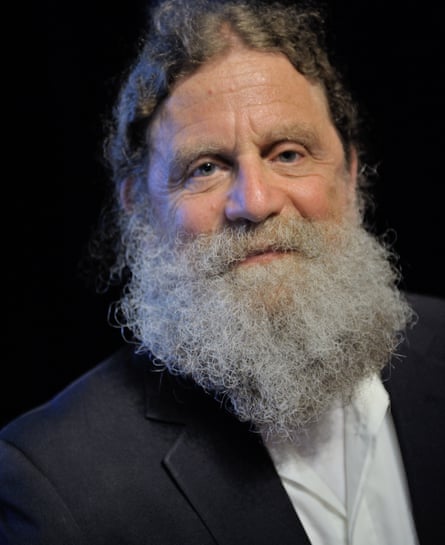Review: “Determined: Life Without Free Will” by Robert Sapolsky explores the scientific aspects of decision-making.
T
The philosophical discussion regarding free will can be mind-boggling for those encountering it for the first time. Some thinkers argue against the existence of free will, claiming that individuals do not truly make choices. For instance, earlier this week, I went to a cafe and bought a coffee. It may have seemed like I had a choice, but according to those who reject free will, I did not. No one forced me to go inside at gunpoint, and I am not controlled by an addiction to caffeine. I simply desired coffee. However, this desire and the actions I took to satisfy it were caused by activities in my brain. And what caused those activities? Previous brain events interacting with my surroundings. In fact, my brain itself is determined by my genetics and upbringing, both of which were a result of my parents meeting by chance – and this can be traced back to the beginning of the universe in an unbroken chain of causes.
If our actions are predetermined, the moral implications are overwhelming. It becomes difficult to hold individuals like Harold Shipman, Charles Manson, Vladimir Putin, or Donald Trump accountable for their actions. If I had the same genetic makeup and upbringing as Shipman, I would essentially be him; there is no hidden part of my mind that possesses free will and can make better choices. (I am disregarding the concept of randomness in quantum physics for the sake of my sanity; trust me when I say that most free-will theorists do not believe it affects the discussion significantly.)
Many philosophers who reject the concept of free will still struggle with the idea because it goes against our natural instincts. However, a majority of these philosophers are “compatibilists,” meaning they believe that our actions are predetermined but we still possess free will. As someone who is skeptical of free will, I often find this viewpoint contradictory. However, the compatibilists do make a valid point. For example, if you want to buy a coffee and nothing is preventing you from doing so, such as lack of funds or a closed cafe, then can it truly be said that your purchase is not a free choice? Some may argue that the root of the issue is not having the freedom to choose our desires in the first place. But in order for that to be considered true freedom, we would have to be able to control what we want, which is an unsettling concept.
Renowned behavioral scientist Robert Sapolsky takes on the daunting task of disproving the concept of free will in his book, Determined. Despite this challenge, he aims to demonstrate that accepting the absence of free will does not mean we must abandon morality or succumb to hopelessness. What adds to the book’s peculiarity is that Sapolsky presents his argument in a style reminiscent of a highly knowledgeable, yet laid-back individual from the West Coast. (I am still reeling from his response, in a book filled with footnotes and diagrams of motor neurons, to the realization that we do not have control over our lives: “Damn. That really sucks.”)

His plan is quite ambitious: to trace each link in the cause-and-effect chain that leads to human behavior. This includes examining what occurs in the brain in the last few milliseconds before we act, as well as how our brains are influenced by early experiences and even beyond that, focusing on specific neurotransmitters and genes.
As he journeys, he passionately challenges the notion of “grit”, which implies that individuals from challenging backgrounds can simply choose to develop more willpower. While there are those who have “overcome bad luck with remarkable determination and resilience”, their ability to do so was also influenced by luck. Luck plays a role in everything, including the character traits needed to handle misfortune. In the words of Galen Strawson, a skeptic of free will, “luck dominates all”.
Sapolsky’s well-researched and engaging performance in “Determined” is a must-read. However, it is uncertain if this thorough examination of the factors influencing human behavior will sway anyone’s beliefs about free will. This is because most opponents of free will base their arguments on abstract reasoning rather than empirical evidence. If every event in the present can be traced back to a previous event, then the specifics of causation may be insignificant.
On the other hand, those who align with the compatibilist perspective have already accepted the concept that all actions are determined and do not see it as a challenge to free will. Therefore, Sapolsky’s emphasis on complete causation is unlikely to bother them. It is possible that some individuals believe free will resides in an unexplored part of the brain, but this book will dispel that belief. However, in the field of philosophy, this is not a widely held belief.
Sapolsky’s tendency to express his dislike for writing certain parts of the book could potentially be attributed to a subconscious awareness of the issues being discussed. In one instance, he even refers to a section with a seemingly ridiculous heading, emphasizing his lack of enthusiasm for the task. Later on, about 170 pages later, he again expresses his reluctance to write the next chapter. Some may argue that once the argument against free will has been established, there is no need to continue writing.
Later in the book, when he addresses the issue of living without free will, Sapolsky’s compassionate perspective shines through. Some argue that realizing our lack of freedom may turn us into immoral beings. However, he argues that it’s a reason to live with forgiveness and understanding – to see past “the absurdity of hating someone for their actions”. This concept serves as the ultimate philosophical basis for the idea of “there but for the grace of God go I”. A common paradox arises in discussions about how we should respond to the absence of free will: if there is no free will, then our responses are predetermined. However, this does not mean that Sapolsky’s thought-provoking and empathetic book won’t impact people’s thoughts and behaviors towards one another. It simply means that they did not freely choose to make those changes.
Source: theguardian.com



